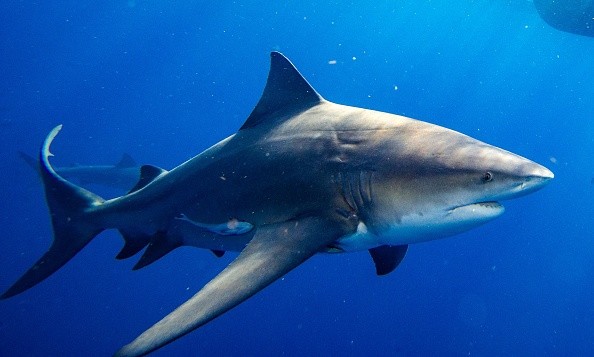A researcher who specialized in sleep among aquatic organisms, from sharks to crocodiles, has discovered the first physiologic evidence that sharks take a break from seeking food to catch a few winks.
The comparative sleep physiologist investigated the metabolic markers of sleep and behavioral sleep markers in draughts board sharks from New Zealand.
Scientists investigate sharks' sleep

Sharks, scientists have discovered, do not sleep or relax in the same manner that mammals do. Some sharks, for example, must swim continually, even when sleeping, to keep oxygen-rich flowing water over their gills.
His investigation discovered that while they were idle for more than five minutes, they generated a decreased metabolic rate and a reclined body position, confirming the hypothesis that they were saving energy by sleeping.
Mike Kelly, a postdoctoral research fellow at SFU's Circadian Rhythms and Sleep Lab and Translational Neuroscience Lab, researched the metabolic markers of sleep and behavioral sleep indicators in draughtsboard sharks in New Zealand.
According to ScienceDaily, his investigation discovered that while they were idle for more than five minutes, they generated a decreased metabolic rate and a reclined body position, confirming the hypothesis that they were conserving energy by sleeping.
Kelly and her colleagues studied the sharks for 24 hours, tracking their metabolic rates and behavior while swimming, resting, and maybe sleeping.
Kelly explains that after five minutes of inactivity, the sharks displayed a considerable fall in metabolic rate and a noticeable postural shift, demonstrating a definite split between periods of calm wakefulness and sleep.
While many animals, including bony fish species, sleep, Kelly claims that his study provides the first physiological evidence of sleep in elasmobranchs, a fish group that includes sharks, rays, and skates.
Kelly previously investigated crocodile sleep behavior for his Honors thesis at Australia's La Trobe University. The findings, which revealed that these species most likely sleep with one eye open, were eventually published in the Journal of Experimental Biology.
They discovered that Draughtsboard sharks sleep during the day
Draughtsboard sharks are ambush predators, thus they normally position themselves with their fins out and heads up, per Smithsonian Magazine.
When the sharks went asleep, however, the researchers witnessed the fish flattening and cuddling closer to the earth.
The sharks slept with their eyes closed on occasion, but typically throughout the day.
According to Science Alert's Tessa Koumoundouros, the sharks chose to keep their eyes open more frequently at night, prompting experts to think that the sharks' eye closure may have more to do with light than the sleep condition itself.
Even though they looked like sleeping, around 38% of sharks kept their eyes up at night.
More research is needed to determine whether other species sleep similarly to the draughtsboard shark, according to the scientists.
They intend to study the sharks' brain activity while sleeping in order to understand more about their wake and rest states.
Sharks have been swimming in our oceans for almost 400 million years and have developed very little throughout that period, giving us a glimpse into the past, Kelly told Newsweek that understanding how and why these creatures sleep will give crucial insight into the role of sleep and its evolution.
© 2025 NatureWorldNews.com All rights reserved. Do not reproduce without permission.





